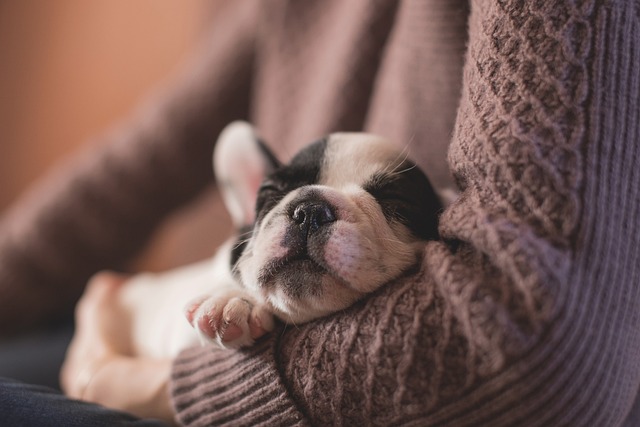Training Tips for New Puppy Owners
As a new puppy owner, it’s essential to understand that training is an ongoing process. Puppies require time, effort, and patience to learn good behavior and become well-adjusted adult dogs. In this article, we will provide you with valuable tips and strategies to help you train your new furry friend.
Firstly, it’s crucial to establish a routine and schedule for feeding, exercise, and playtime. This consistency will help your puppy feel secure and develop good habits. Create a schedule that works for you and stick to it, ensuring your puppy gets enough rest, exercise, and mental stimulation.
Next, housebreaking is an essential aspect of training. Choose a designated area outside where you’ll take your puppy to eliminate, such as a grassy spot or a puppy pad. Praise and reward your puppy with treats and affection when they eliminate correctly. Accidents will happen, but don’t scold or punish your puppy. Instead, clean up the mess promptly and encourage them to go back to their designated area.
Socialization is another critical aspect of training. Introduce your puppy to new people, places, and experiences, such as dog parks, pet stores, and friend’s homes. This exposure will help your puppy become confident and calm in new situations. When socializing, keep interactions brief and positive, avoiding overwhelming or stressful situations.
Positive reinforcement is a powerful tool for training. Reward good behavior with treats, praise, and affection, while ignoring or redirecting bad behavior. Be consistent in your rewards and avoid overindulging your puppy. Use high-value treats initially to encourage desired behavior, then gradually phase out the treats as your puppy learns.
Crate training can be an effective way to housetrain and reduce separation anxiety. Introduce the crate gradually, starting with short periods of time, and increase duration as your puppy becomes comfortable. Make sure the crate is spacious enough for your puppy to stand up, turn around, and lie down comfortably.
Teaching basic commands like “sit,” “stay,” “come,” and “leave it” can be achieved through positive reinforcement techniques. Use treats, praise, and affection to encourage desired behavior, then gradually phase out the rewards as your puppy learns. Be patient and consistent in your training, as puppies may not grasp these commands immediately.
Teaching manners like walking on a leash, not jumping up, and not biting are also essential for social etiquette. Practice these behaviors regularly, using positive reinforcement techniques to encourage desired behavior.
In conclusion, training a new puppy requires patience, consistency, and positive reinforcement. Establishing a routine, housebreaking, socialization, crate training, teaching basic commands, and teaching manners can help you raise a well-adjusted and well-behaved adult dog. With time, effort, and dedication, you’ll be rewarded with a loyal companion who will bring joy and happiness into your life.
Tags: Training Puppy, New Puppy Owners, Dog Training Tips, Housebreaking Puppy, Positive Reinforcement Training, Crate Training Puppy, Basic Commands for Dogs, Manners for Dogs

